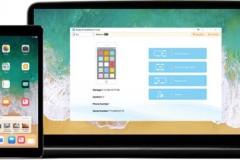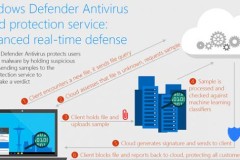WASHINGTON, Oct. 19, 2023 (GLOBE NEWSWIRE) -- The Sabin Vaccine Institute has launched a Phase 2 clinical trial for its vaccine candidate against the lethal Marburg virus. Healthy volunteers received the single-dose vaccine at Makerere University Walter Reed Project (MUWRP) in Kampala, Uganda today.
There are currently no vaccines or antiviral treatments approved to treat Marburg virus disease. Marburg is a filovirus, in the same family as the virus that causes Ebola. Like Ebola, Marburg virus disease spreads between people via direct contact with the blood or other bodily fluids of infected people, is highly virulent, and causes hemorrhagic fever. The disease has a fatality rate of up to 88%.
Based on the ChAd3 platform, Sabin’s single-dose investigational Marburg vaccine was found to be promising in Phase 1 clinical and non-clinical studies, with results showing it to be safe, while eliciting rapid and robust immune responses.
Dr. Betty Mwesigwa, deputy executive director of MUWRP, is the principal investigator for the Kampala portion of the Sabin-sponsored trial. Participants will also be enrolled a few weeks later at a second site at the Kenya Medical Research Institute in Siaya, Kenya, with Dr. Videlis Nduba as principal investigator. In all, 125 volunteers will participate in the trial.
“We have an extraordinary opportunity here to improve our preparedness to save lives and protect people from a deadly and unforgiving disease that typically strikes under-resourced countries first and most,” says Amy Finan, Sabin’s Chief Executive Officer. “Sabin’s Phase 2 clinical trial builds on a solid safety and immunogenicity foundation and we are hoping it will generate the information needed to move the vaccine toward licensure.”
The number of Marburg outbreaks in Africa has climbed steadily in recent years. Two outbreaks of Marburg virus disease have occurred already this year: Equatorial Guinea reported its first ever documented Marburg outbreak, which killed 12 people, followed by Tanzania, where six people succumbed to the virus. Communities in Uganda and Kenya are familiar with Marburg virus disease, having been ravaged by outbreaks over multiple years in the last few decades.
“Makerere University Walter Reed Project (MUWRP) is delighted to partner with the Sabin Vaccine Institute to launch the clinical testing for a preventive Marburg vaccine,” says Dr. Mwesigwa. “Most Marburg virus disease outbreaks have originated in Africa. Uganda alone has registered 4 outbreaks of the disease. We urgently need a vaccine against Marburg because of its potential to cause epidemics with significant death rates. It is imperative for us to test candidate vaccines in Uganda, a country prone to these outbreaks. This work will contribute new knowledge to inform the scientific discovery for an effective vaccine against the deadly Marburg virus.”
The Phase 2 clinical trial for Sabin’s Marburg vaccine will continue to evaluate safety and immunogenicity for the vaccine, this time among a larger group of individuals. This is a randomized, placebo-controlled, double-blind study, meaning that neither the participants nor the researchers will know whether trial participants receive a vaccine dose or a placebo dose until after the trial is over, an approach used to help reduce experimental bias.
Participants in the clinical trial will be monitored for a full year and will include both younger (18-50 years) and older age groups (51-70 years). Interim results are expected next year. In addition to the current trial in Uganda and Kenya, Sabin plans to conduct a similar Phase 2 clinical trial for Marburg in the U.S.
The Marburg vaccine trials are supported by the Biomedical Advanced Research and Development Authority (BARDA), part of the Administration for Strategic Preparedness and Response within the U.S. Department of Health and Human Services, under multi-year contracts between the organizations, including most recently a $36.4 million award for vaccine development and production.
Similarly, BARDA has invested in Sabin for advancing ChAd3 Sudan ebolavirus vaccine candidate, including awarding $28 million this August for Phase 2 clinical trials in the U.S.
To date, Sabin has received around $215 million in contract awards from BARDA for furthering vaccine research and development against Sudan ebolavirus and Marburg virus diseases.
BARDA and Sabin began working together in September 2019 to develop the two monovalent vaccine candidates. Sabin’s Sudan ebolavirus vaccine candidate was the first to arrive in Uganda last year during the disease outbreak that left 55 people dead. Sabin has also initiated plans for a Phase 2 Sudan ebolavirus vaccine clinical trial in Uganda and Kenya.
This project has been supported in whole or in part with federal funds from the Department of Health and Human Services; Administration for Strategic Preparedness and Response; Biomedical Advanced Research and Development Authority (BARDA), under contract numbers 75A50119C00055 and 75A50123C00010.
About the Sabin Vaccine Institute
The Sabin Vaccine Institute is a leading advocate for expanding vaccine access and uptake globally, advancing vaccine research and development, and amplifying vaccine knowledge and innovation. Unlocking the potential of vaccines through partnership, Sabin has built a robust ecosystem of funders, innovators, implementers, practitioners, policy makers and public stakeholders to advance its vision of a future free from preventable diseases. As a non-profit with three decades of experience, Sabin is committed to finding solutions that last and extending the full benefits of vaccines to all people, regardless of who they are or where they live. At Sabin, we believe in the power of vaccines to change the world. For more information, visit www.sabin.org and follow us on X, @SabinVaccine.About Sabin’s Vaccine R&D Using the ChAd3 Platform.
About Sabin’s Vaccine R&D Using the ChAd3 Platform
In August 2019, Sabin announced exclusive agreements with GSK for Sabin to advance the development of the prophylactic candidate vaccines against the deadly Ebola Zaire, Ebola Sudan and Marburg virus. The three candidate vaccines were initially developed collaboratively by the U.S. National Institutes of Health and Okairos, which was acquired by GSK in 2013. The candidate vaccines, based on GSK’s proprietary ChAd3 platform, were further developed by GSK, including the Phase II development for the Ebola Zaire vaccine. Under the agreements between GSK and Sabin, Sabin exclusively licensed the technology for all three candidate vaccines and acquired certain patent rights specific to these vaccines.
About the Makerere University Walter Reed Project
MUWRP is a non-profit biomedical research organization with a mission to mitigate disease threats through quality research, health care and disease surveillance. The project’s scope includes among others; clinical research in infectious and non-infectious diseases such as HIV, Ebola, Marburg, COVID-19, Influenza and Influenza-like illnesses, and neglected tropical diseases such as Schistosomiasis, among others. A major part of the clinical research are clinical trials, where the MUWRP has conducted more than 12 phase I and II vaccine clinical trials including the first Ebola vaccine trial in Africa.
Media Contact:
Monika Guttman
Media Relations Specialist
Sabin Vaccine Institute
+1 (202) 662-1841
press@sabin.org
A photo accompanying this announcement is available at https://www.globenewswire.com/NewsRoom/AttachmentNg/0ecbc982-493a-4ecf-9393-e203708aa3ea

















